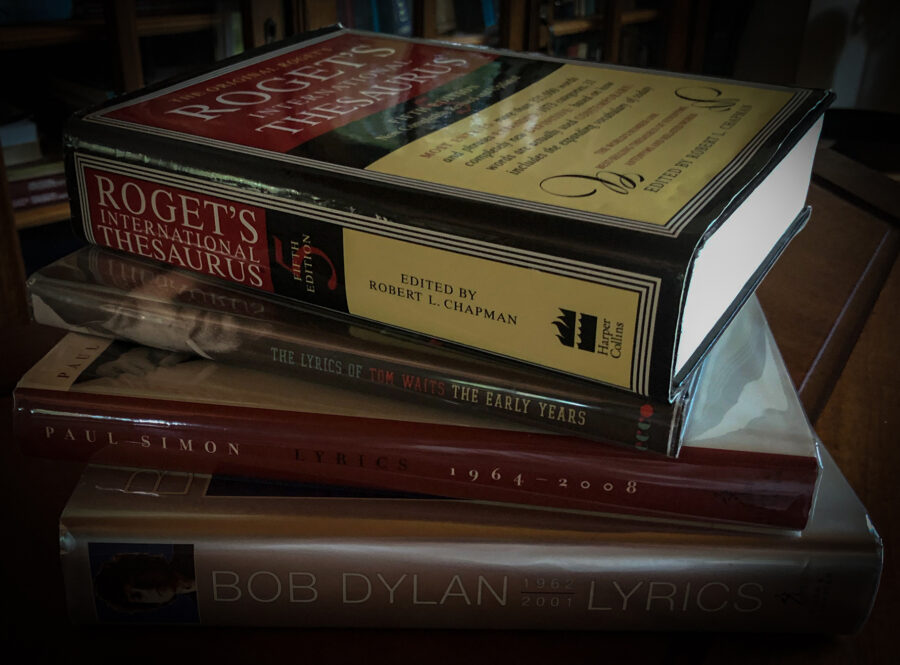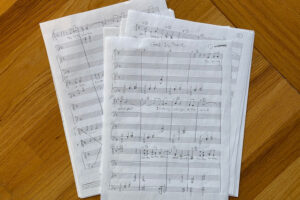Words fascinate me. Words can inspire, encourage, entertain, inform, heal, or hurt. Perhaps it is the idealist in me that believes words can change the world. Sadly, sometimes words are used to mislead—witness the use of words in political rhetoric. One faction may use words to paint another group as “other” through name-calling and divisive, inflammatory rhetoric. Never mind that the words are untrue—by being spoken or written, someone will believe them. That is the power of words.
Handle them carefully, for words have more power than atom bombs.
— Pearl Strachan Hurd in The Christian Science Monitor (1987)
Words can inspire. If I feel down, lost, or empty, I reach for words or music to find what is missing and fill my well again. Lyrical beauty in stories, poems, or songs energize and restore me. The sum of words is more than each one alone—they represent ideas and existences greater than the words themselves.
My task, which I am trying to achieve is, by the power of the written word, to make you hear,
to make you feel—it is, before all, to make you see.
— Joseph Conrad (1857-1925) Polish-British writer regarded as one of the greatest novelists
to write in the English Language
One of my favorite use of words is the opening of Dylan Thomas’ A Child’s Christmas in Wales.
One Christmas was so much like the other, in those years around the sea-town corner now, out of all sound except the distant speaking of the voices I sometimes hear a moment before sleep, that I can never remember whether it snowed for six days and six nights when I was twelve, or whether it snowed for twelve days and twelve nights when I was six.
All the Christmases roll down towards the two-tongued sea, like a cold and headlong moon bundling down the sky that was our street; and they stop at the rim of the ice-edged, fish-freezing waves, and I plunge my hands in the snow and bring out whatever I can find. In goes my hand into that wool-white bell-tongued ball of holidays resting at the rim of the carol-singing sea, and out come Mrs. Prothero and the firemen.
Words do not have to be pretentious, complicated, or intellectual. Simple, straight-forward expressions have much power. Dr. Martin Luther King’s “I Have a Dream” speech is an excellent example. He evoked passion and persuasion using plain language that was easily understood. His use of metaphors, allusions, and repetitions—along with the fervor of a preacher—inspired his listeners then and now to work for freedom and equality for everyone.
I have a dream that one day this nation will rise up and live out the true meaning of its creed: “We hold these truths to be self-evident, that all men are created equal.”
— Dr. Martin Luther King Jr. (1929-1968) American Baptist minister and activist
Don’t ever diminish the power of words. Words move hearts and hearts move limbs.
— Hamza Yusuf (b. 1958) American Islamic neo-traditionalism Islamic scholar
Sometimes I may not know what I am thinking or feeling until I express it with words . . . and more importantly narrow down the meaning with precise words. They have the dynamic ability to express ideas and thoughts—to make tangible the unseen, the ephemeral. Every word has nuanced and specific meanings as evidenced in Roget’s Thesaurus—one of my favorite books!
“Only in Roget’s International Thesaurus will you find 43 ways to say overjoyed and 39 ways to say dejected, 32 ways to be astonished, 59 ways to laugh and 23 ways to weep—and even 58 words to describe the color yellow.”
— from the back of The Original Roget’s International Thesaurus, Fifth Edition
Every blog I write is affirmation of my love for words. And, even though words are straight-forward—I believe there is mystery and power in carefully crafted phrases and sentences. Writers who use words and language clearly, intelligently, and creatively—whether through essays, stories, or songs—always inspire and challenge me.
I love quotes and use them often in my blogs. They can be simplistic or corny, but many are thoughtful and powerful. I am amused by the words Bob Dylan used to describe himself. I find his lyrics wonderfully satisfying—filled with dazzling wordplay, striking images, and words that seared into our collective consciousness universal themes about life. Ah, yes, more than a folk musician in my eyes . . . it takes talent and courage not only to see but also write down the words as eloquently as he did.
I really was never any more than what I was, a folk musician who gazed into the gray mist
with tear-blinded eyes and made up songs that floated in a luminous haze.
— Bob Dylan, Chronicles: Volume One
Between parent and child, teacher and student, friends and lovers—words are important. In speeches, in plays or movies, in songs or poems, in books or magazines, on radio, podcasts or TV—words have power. We can use them to destroy or create. Sometimes a single word can change everything.
All I need is a sheet of paper and something to write with,
and then I can turn the world upside down.
— Friedrich Nietzsche (1844-1900) German philosopher, cultural critic, and philologist










2 Comments
Leave your reply.